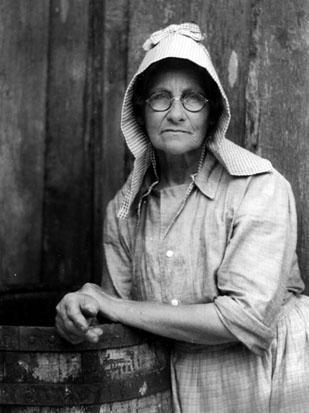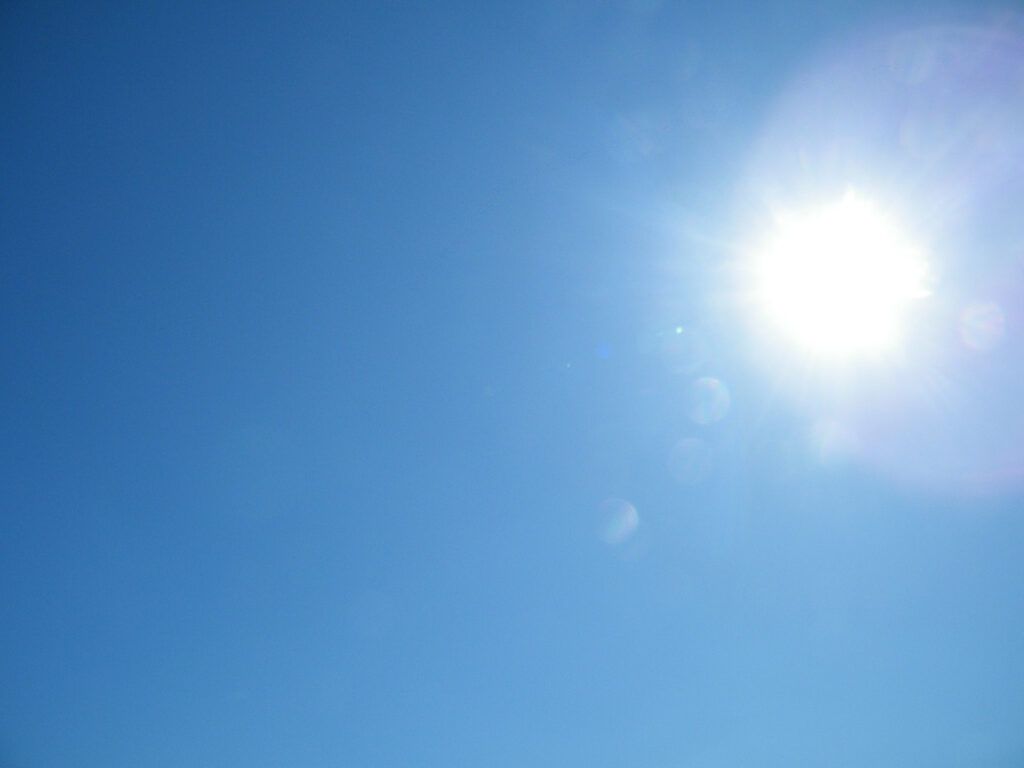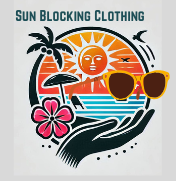Why senior citizens need “some” sun? Do you know why? Exposure to the sun has been proven to help senior citizens reduce the risk of developing skin cancer, diabetes, and heart disease!
I wonder if my Grandmother knew that she was stimulating vitamin D production in her skin by being out in the sun. Senior citizens may develop vitamin D deficiency due to lifestyle changes. Natural aging causes some of the changes as does declining health.

Why Senior Citizens Need “Some” Sun
Studies are showing that when you are deficient in Vitamin D, you are more apt to develop a metabolic syndrome. The combined metabolic syndrome and medical ailments that occur with aging increase the risk of developing diabetes and cardiovascular disease.
So, while you do have to be careful of the dangers of sunburn and overexposure to the sun, Senior Citizens need sunlight on their skin. Your body needs to sun to cause the production of vitamins for better health. Why Senior Citizens need “some” sun becomes apparent.
Sun Gets A Bad Rap
With the rising information about how bad the sun is for your skin, there are important health-building effects we need. Sometimes we may forget that we do need some sunlight, some sun rays on our skin.
Sunlight has had an undesirable image because of the rising concerns about skin cancers, as well as other damages. We do need to remember that scientific studies have shown the importance of sunlight. And this is especially important for senior citizens.
Here are four positive impacts for senior citizens and reasons to get out and into the sunlight. These reasons enhance health for all of us, but especially senior citizens can benefit from natural sunlight.
Better Sleep Habits
Did you know that the sun can help you regulate your sleep patterns? When you have interrupted sleep, the sun is often a part of the reason for those interruptions. With sleep being so important for seniors and healthy life, knowledge of possible reasons for interruptions can help.
Science tells us that once your body senses the natural sunlight, it stops melatonin production. Melatonin is your hormone for sleep.
Stopping the production of melatonin allows you to be awake and alert during the day. You were originally designed to want some time out in the sunshine. This is why senior citizens need “some” sun.
Lifestyle changes and declining health are usually the reason senior citizens get limited and little sunshine on their skin.
Protecting your skin from too much sun and the dangers of skin cancer will continue to be important. Sun blocking hats and sunglasses are very important to seniors as they are getting some sun. Staying alert and not exposing your skin to the direct sun for too long also are important factors.
When you have had your daily 15 or so minutes, it is time to slip on a sun blocking shirt, and get in the shade. Sunscreen is also important if you aren’t going in. Too much sun happens quickly. Watch your time.
Lowers Depression Risks
With adult seniors, studies suggest that too little sunlight exposure causes serotonin levels to drop. This increases the likelihood of developing an affective (or mood) disorder that can lead to a diagnosis of mild depression or bipolar disorder.
This kind of depression has a profound effect on how you feel, and how you think. It almost always requires professional treatment. If you or a loved one is displaying these symptoms, and you know there has been little sun exposure, consider helping start a different routine of some sun every day.
This is like all self-healing strategies. It will take a while to show improvement. But knowing that there is an improvement on the way will make all feel better. Sitting out every day can be a problem, but is a worthy goal. Even a few days a week is helpful.
Do you spend long hours at your desk and find yourself getting less and less sun, stay aware. This kind of disorder slowly appears. Get your needed exposure to the sun, but limit your time in the sun.

Alzheimer’s Disease and Sunlight
We all have a Circadian rhythm. This part of you influences when you are more active, how your mental process works, as well as having some effect on your behavioral changes.
This all happens in a 24-hour cycle. Most of the time your days flow in productive and healthy routines.
These natural processes react primarily to light and dark and affect most living things, including animals, plants, and microbes.
When senior citizens have Alzheimer’s Disease, they sometimes have disruptions to their circadian rhythms. This makes the disease seem worse than it is because of the actions of the patient.
Sometimes sun exposure can make the occurrence be milder. Sun exposure also helps the elderly receiving Alzheimer’s care feel happier and more alert, specifically helping them be more active in daylight hours, and sleeping in the dark time.
Extreme caution must be taken to see that an Alzheimer’s patient does not receive too much sun. This often makes it hard for caregivers. As the senior citizens may be lethargic and not able to monitor their own sun times.
Increase Your Vitamin D Production
It is common for senior citizens to have a Vitamin D deficiency. With this being a vital nutrient for their health, this will affect your overall health
We are naturally dependent on sunlight so we can produce Vitamin D. Therefore older adults who lack it are certainly at risk for health issues, like heart attack, strokes, and osteoporosis.
This is how our dependency on sunlight allows us to live better. We can live a healthier life as senior citizens, and be able to alleviate some cardiovascular health risks.
Sunlight is very important in more areas of your health than I knew. Some sunlight can be good, but too much can be harmful.
If your spouse is in the beginning stages of Alzheimer’s developing a habit of getting some sun every day is important for both of you. This could help delay symptom progression. It will benefit you as well and may prevent some of the “I have caughtAlshemiers too” feelings.
If you can get 20 or 30 minutes a day of sun, that is enough. You will also do well with 4 or so days a week. However, know your sunburn risks. If you burn quickly, you will need to build your exposure time slowly.
I burn in 15 minutes to start with. I try to have my sun hat, and a short sleeve shirt and not have my face exposed. Usually, I can build pretty quickly and for me being outside in the garden or yard for 30 minutes has me seeking a long sleeve shirt.
I have been careless for too long already.
Skin Cancer Can Be The Result Of Too Much Sun
Skin Cancer is way too common, among seniors. However, it isn’t the only danger of too much sun.
A weak immune system is one of the effects of too much exposure to the sun. This is especially dangerous for senior citizens.
Adding overexposure during your senior years to the many years of sun exposure of a lifetime will make your skin conditions more apt to cause issues.
Protect your skin, starting right now, as you should have when you were younger!
The simplest way to protect aging skin is by wearing loose clothing, that covers your body. Remember your wide-brimmed hats and sunglasses.
Apply sunscreen to areas not covered for any time over 30 minutes in the sun. When you are getting your daily sun, watch the clock. Make sure to protect your skin, even in the winter. That sun is still dangerous.
Senior citizens, make sure to drink plenty of water and other non-alcohol liquids to keep your body healthy and keep you mentally alert.
A skin cancer screening is important for senior citizens every 2 or 3 years to maintain healthy skin.
A Quick Sunburn Reminder for Senior Citizens Who Need Some Sun.
Your skin produces a unique protective element called melanin. This is your automatic response to the sun on your skin. Your skin is merely trying to protect itself.
If your body can produce enough melanin, a darker layer of color will cover your skin. Then there is a chance you can wind up like me and have freckles!
When you produce adequate quantities, melanin can prevent sun damage. This can become permanent and we will think you have a tan!
However, if the seniors in your family stay out under the sun for too long a time, their skin may not be able to produce enough melanin anymore. If you were me, you never produced enough melanin to prevent sunburn, even when you were young.
Because of this, you are more likely to have sunburn. When you know that you will be in the sun for over 30 minutes, protect your skin.
Even if you plan to only go out to your garden, grab your wide brim sun hat and sunglasses. Protect your eyes always. When you are a senior citizen, you have probably already made yourself ready for cataract surgery! Don’t do more damage.
Develop some better habits and protect yourself. Keep your sun blocking shirt handy.
Just A Little About Cosmetic Issues
Do you sunburn more quickly as you get older?
As you age, there are two types of skin aging going on in your body.
Intrinsic Aging, or just normal chronological aging, occurs in all individuals. As we age our skin loses fat and water content and becomes thinner. This loss allows UV light to penetrate more deeply.
The problem is made more difficult because the body’s natural ability to repair damaged DNA diminishes. This increases the likelihood of abnormal cell growth. This is what causes mutations leading to skin cancer.
The natural decline in our immune systems may allow prior DNA damage to go ahead and progress to cancer.
The decline in immune systems also leaves us more susceptible to cancers from future DNA damage. Many diseases and conditions related to aging contribute to this immune decline.
Atherosclerosis, diabetes mellitus, and congestive heart failure are known to slow blood flow. This can decrease immune responses even more. These actions all contribute to reducing your skin’s ability to heal.
Natural Aging
Extrinsic Aging is caused by external factors such as ultraviolet (UV) light exposure (both sunlight and tanning beds), industrial chemicals, human immunodeficiency virus as well as environmental pollutants.
Above all, many senior citizens increase their UV exposure. Retirement allows them to move to sunnier climates. Or just start enjoying more outdoor activities like golf, fishing, and tennis, gardening. Hiking and biking are enjoying a lot of popularity as healthier and more active seniors have time.
Since UV light is what suppresses the immune system. This in turn accelerates your natural immune decline. These slight events in aging would not make a difference by themselves. However, put them all together and it becomes easier for the development of skin cancer.
UV light also breaks down the elastic tissue (elastin) in your skin over time. This leads to wrinkles, sagging, discoloration, and blotchiness.
The old adage we hear about getting older is not something the weak should consider? Now you see why!
Both of these kinds of aging play a part in developing skin cancer.
More Good News
The skin is especially susceptible to sun damage since it covers the entire surface of the body.
Your skin is the first organ to come in direct contact with UV rays. We once thought that most sun damage occurred before age 18 and that this early damage triggered most of the genetic changes that later led to skin precancers and cancers.
That led to some older people thinking, “The damage is done, and there’s nothing I can do about it.” Follow-up research is showing that we continue to have substantial UV exposure as long as we live, with the majority of exposure occurring after age 40.
This later exposure is often what flips on the switch for skin cancers, so sun protection remains our responsibility throughout our lives.
Preventing Skin Cancer
Since we know that UV exposure is the primary cause, skin cancer is almost entirely preventable.
Fortunately for senior citizens, prevention is not that big a burden. We just need to make some changes and take consistent precautions.
It’s pretty much a 3 step protection program:
1) Stay out of tanning beds This first part is easy: never climb into a tanning bed.
More people develop skin cancer because of UV tanning than develop lung cancer because of smoking!
2) Make sure to use effective sun protection. Better sun protection starts with timing: The hours between 10 AM and 4 PM are typically the most UV-intense, so plan outside adventures for early morning or late afternoon.
When you do go outside, stay in the shade away from the direct sun and wear sun-safe clothing. A long-sleeved shirt and long pants made of densely woven materials, a wide-brimmed hat and UV-filtering sunglasses are where you should start with sun blocking clothing.
Use an SPF 30 or higher broad-spectrum sunscreen for extended or intense outdoor exposures such as on the golf course. Reapply at least every two hours or immediately after swimming or heavy sweating.
3) Check your skin. It also helps to be aware of your skin type, since fair-skinned people with light-colored eyes and hair suffer sun damage more easily. Check out SkinCancer.org/quiz. Find your skin type, and take the proper precautions.
Self Skin Checks Are Life Saving
Along with protecting your skin, watch for suspicious growths.
The Skin Cancer Foundation recommends head-to-toe self-examination once a month and an annual visit to a dermatologist for a professional total-body exam. This gives you the best chance of discovering skin cancer early when it is a more easily treatable stage.
Be alert to any growth with an irregular border, multiple colors, and increased size, or any other noticeable change. Persistent pain, irritation, itching, bleeding, or crusting at any skin site should also be brought to your dermatologist’s attention.
This is true of any new lesion appearing after age 40.
The majority of age-related skin conditions can be associated with sun damage to your skin. Science tells us that this is because UV light physically changes the skin cells. Along with the change the damage will prevent the capability of creating elastin and collagen.
Prolonged sun exposure will increase your senior citizen’s risk of developing wrinkles, skin discoloration, and benign tumors.
The information in this article “Why Senior Citizens Need Some Sun” and how important the sun is for our health can help you make good changes.
Why Senior Citizens Need Some Sun But Not Without Skin Protection
The Skin Cancer Foundation states that “the face is the most vulnerable to sun damage.”
Less than half of older adults protect their skin from the sun when outside for an hour or more on a warm, sunny day. This can easily raise their risk of getting skin cancer.
Why This Matters
People who reach the age of 65 can expect to live, on average, 2 more decades. That is another 20 years!
This means efforts to improve the awareness of sun protection and reduce sunburn among older adults. It would likely help to reduce skin cancer risk in later decades of life.
More research can help us to understand the best ways to promote and support sun safety among older adults. Communities can continue making sun protection options easily accessible to older adults by increasing shade in outdoor public spaces.
This increasing shade would make it easier for senior citizens to get the sun they need and stay healthier. This would reduce the drain on our Medicare system and give seniors more years of better health.
What can you do to stay healthier and keep your skin safe?
Senior Citizens have a tricky relationship with the sun. Many seniors retire to Florida where they don’t use enough sunscreen.
Others stay inside and develop Vitamin D deficiencies. There are risks for overexposure to sunlight. And risks for underexposure!
Too Little Sun For Senior Citizens
Aging parents sometimes spend all their time indoors. This could result in sickness or disability. Mental issues plague seniors. They are at risk for agoraphobia, which is the fear of leaving their homes.
Senior Citizens rightfully wonder what will happen if they fall while outdoors. Seniors in nursing homes are most at risk of getting too little sun.
We need to pay attention to what senior care specialists tell us are health risks associated with too little sun exposure. The most common problem is Vitamin D deficiency. Such a deficiency leads to more fragile and easily broken bones.
Too little sunshine can also limit your body’s ability to process insulin effectively.
Diabetic management may indicate a patient needs more sunshine. And being in the sun for five to 30 minutes a day may also help prevent heart disease.
In addition, being out in the sun is good therapy for seniors at risk for depression. Being outside promotes moderate exercise like walking which is also good for fighting depression and overall health.
Too Much Sun For Senior Citizens
While many seniors are suffering from Vitamin D loss, others are living dangerously in the sun. They are not wearing their hats and not applying their sunscreen.
This is considered dangerous because the risk of skin cancer does not go away with age.
Reducing sunburn can help protect seniors from developing cancer later in life. The CDC also notes that 85 percent of senior citizens need to do a better job of protecting themselves from the sun.
If your parent is outdoors for more than ten minutes a day on average, be sure to recommend sunscreen, long pants, long sleeves, hats, sunglasses as well as breaks in the shade.
Senior citizens have not outlived their risk of skin cancer, whatever they may think.
At the same time, seniors who could be described as “shut-ins” are at risk of too little sun exposure. A few minutes of sun exposure a day is the easiest way to keep up a healthy amount of Vitamin D in one’s system.
Vitamin D is essential to a healthy body.

Sami’s Take On Why Senior Citizens
Need “Some” Sun
Making use of information now available can help senior citizens reach a good safe balance of sun exposure and skin protection.
Changing a few of their lifestyle habits can make senior citizens enjoy a long and healthy life. It is simply a matter of becoming aware and making good choices.
How will you live your senior years? How will you be able to help the senior citizens in your family make healthy choices? Now you know why Senior citizens need some sun.
